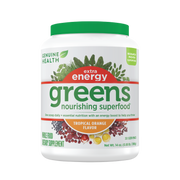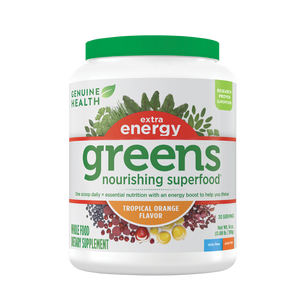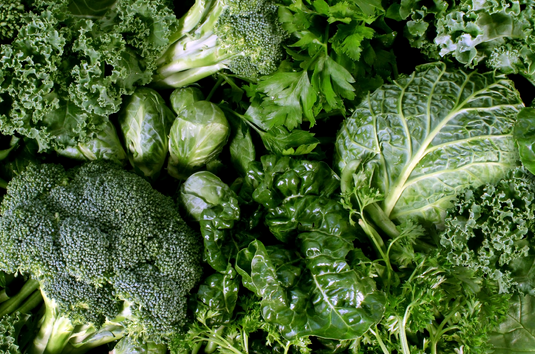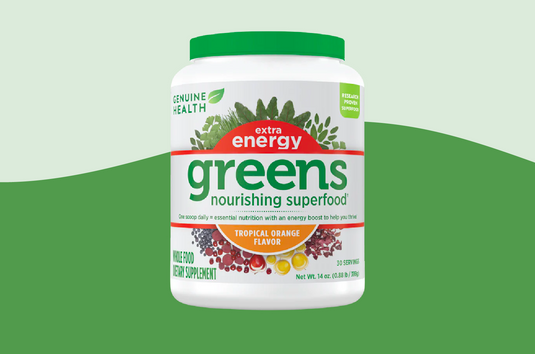The Dangers of Undernutrition and Overnutrition

Remember Super Size Me? This Oscar-nominated 2004 documentary featured a young man who dined on nothing but fast-food for 30 days. Even in this experiment’s short time-frame, there were huge consequences, including depressed mood and motivation, significant weight gain (24 pounds!), unhealthy changes in blood lipids and accumulation of fat in the liver. This film perfectly portrayed the potential consequences to a condition scientists refer to as overnutrition.
When scientists use the term overnutrition they are not making any reference to the completely distinct term of nourishment. In fact, overnutrition mostly runs hand-in-hand with malnourishment. Overnutrition is generally excess consumption of processed carbohydrates and refined fats: foods that are energy dense – and nutritionally desolate.
But, for all the discussions of the fast-foods consumed in Super Size Me, there was very little talk of what wasn't consumed during that month. What was missing? There are lots of calories in overnutrition, but very little of the nourishment that is provided by phytonutrients (plant nutrients) that give healthy, lower-calorie plant foods their deep colours, unique tastes and textures. The missing constituents of overnutrition also includes healthy omega-3 fatty acids and fibre.
So, there are two major problems with the modern plague of overnutrition - too much of what we don't need (excess calories, especially in the context of the modern sedentary lifestyle) and too little of what we really do need in the context of true nourishment. Super Size Me picked on just some of the health-related consequences of overnutrition and undernourishment, but there are many more. In fact, there really isn't a single bodily system that isn't heavily impacted by even short-term undernourishment.
Undernourishment turns on a damaging cascade of low-grade inflammation and disrupts the healthy diversity of the microbial ecosystem in the gut - associated with many undesirable metabolic consequences. In fact, a recent study showed dramatic changes to gut microbes when a traditional-living group in Africa consumed typical North American fare: the health consequences were rapid and extremely negative. The long-term consequences of overnutrition and undernourishment are devastating; they diminish quality of life and increase the risk of countless diseases.
What’s more, is how many of us unknowingly straddle the overnutrition and undernourished categories! Research suggests there are gaps between how healthy we think we eat and day-to-day reality. It is true that users of multivitamins do have generally better lifestyle habits. They tend to more exercise and eat more whole foods. However, even consumers of natural health products have been shown to have nutrient gaps.
But there is good new here, too. While Super Size Me provided a popularized snapshot of the health consequences of overnutrition and undernourishment, there are new studies showing that intervening at the nourishment level - more colourful phytonutrients, fibre and omega-3 - can tilt things back in the right direction. Some of the benefits of re-establishing nourishment can happen quite rapidly; improving mental outlook and motivation. Beneficial changes to the gut ecosystem can also happen rapidly.
Nutrition is not the same as nourishment, and in my practice I focus on the latter. A balanced approach with whole foods and plant-based supplements can be very effective. Sometimes the nourishment reset button is even more pronounced with fermented foods and fermented supplements due to their added value in the gut ecosystem.
References:
Jia G, Aroor AR, Martinez-Lemus LA, Sowers JR. Overnutrition, mTOR signaling, and cardiovascular diseases. Am J Physiol Regul Integr Comp Physiol. 2014 Nov 15;307(10):R1198-206.
Zhang YJ, Gan RY, Li S, Zhou Y, Li AN, Xu DP, Li HB. Antioxidant Phytochemicals for the Prevention and Treatment of Chronic Diseases. Molecules. 2015 Nov 27;20(12):21138-56.
O'Keefe SJ, et al. Fat, fibre and cancer risk in African Americans and rural Africans. Nat Commun. 2015 Apr 28;6:6342.
Dickinson A, MacKay D. Health habits and other characteristics of dietary supplement users: a review. Nutr J. 2014 Feb 6;13:14.
Lee, J, et al: Switching to a 10-day Mediterranean-style diet improves mood and cardiovascular function in a controlled crossover study. Nutr 2015 May;31(5):647-52.
Steenbruggen TG, Hoekstra SJ, van der Gaag EJ. Could a Change in Diet Revitalize Children Who Suffer from Unresolved Fatigue? Nutrients. 2015 Mar 13;7(3):1965-1977
When scientists use the term overnutrition they are not making any reference to the completely distinct term of nourishment. In fact, overnutrition mostly runs hand-in-hand with malnourishment. Overnutrition is generally excess consumption of processed carbohydrates and refined fats: foods that are energy dense – and nutritionally desolate.
But, for all the discussions of the fast-foods consumed in Super Size Me, there was very little talk of what wasn't consumed during that month. What was missing? There are lots of calories in overnutrition, but very little of the nourishment that is provided by phytonutrients (plant nutrients) that give healthy, lower-calorie plant foods their deep colours, unique tastes and textures. The missing constituents of overnutrition also includes healthy omega-3 fatty acids and fibre.
So, there are two major problems with the modern plague of overnutrition - too much of what we don't need (excess calories, especially in the context of the modern sedentary lifestyle) and too little of what we really do need in the context of true nourishment. Super Size Me picked on just some of the health-related consequences of overnutrition and undernourishment, but there are many more. In fact, there really isn't a single bodily system that isn't heavily impacted by even short-term undernourishment.
Undernourishment turns on a damaging cascade of low-grade inflammation and disrupts the healthy diversity of the microbial ecosystem in the gut - associated with many undesirable metabolic consequences. In fact, a recent study showed dramatic changes to gut microbes when a traditional-living group in Africa consumed typical North American fare: the health consequences were rapid and extremely negative. The long-term consequences of overnutrition and undernourishment are devastating; they diminish quality of life and increase the risk of countless diseases.
What’s more, is how many of us unknowingly straddle the overnutrition and undernourished categories! Research suggests there are gaps between how healthy we think we eat and day-to-day reality. It is true that users of multivitamins do have generally better lifestyle habits. They tend to more exercise and eat more whole foods. However, even consumers of natural health products have been shown to have nutrient gaps.
But there is good new here, too. While Super Size Me provided a popularized snapshot of the health consequences of overnutrition and undernourishment, there are new studies showing that intervening at the nourishment level - more colourful phytonutrients, fibre and omega-3 - can tilt things back in the right direction. Some of the benefits of re-establishing nourishment can happen quite rapidly; improving mental outlook and motivation. Beneficial changes to the gut ecosystem can also happen rapidly.
Nutrition is not the same as nourishment, and in my practice I focus on the latter. A balanced approach with whole foods and plant-based supplements can be very effective. Sometimes the nourishment reset button is even more pronounced with fermented foods and fermented supplements due to their added value in the gut ecosystem.
References:
Jia G, Aroor AR, Martinez-Lemus LA, Sowers JR. Overnutrition, mTOR signaling, and cardiovascular diseases. Am J Physiol Regul Integr Comp Physiol. 2014 Nov 15;307(10):R1198-206.
Zhang YJ, Gan RY, Li S, Zhou Y, Li AN, Xu DP, Li HB. Antioxidant Phytochemicals for the Prevention and Treatment of Chronic Diseases. Molecules. 2015 Nov 27;20(12):21138-56.
O'Keefe SJ, et al. Fat, fibre and cancer risk in African Americans and rural Africans. Nat Commun. 2015 Apr 28;6:6342.
Dickinson A, MacKay D. Health habits and other characteristics of dietary supplement users: a review. Nutr J. 2014 Feb 6;13:14.
Lee, J, et al: Switching to a 10-day Mediterranean-style diet improves mood and cardiovascular function in a controlled crossover study. Nutr 2015 May;31(5):647-52.
Steenbruggen TG, Hoekstra SJ, van der Gaag EJ. Could a Change in Diet Revitalize Children Who Suffer from Unresolved Fatigue? Nutrients. 2015 Mar 13;7(3):1965-1977

































































